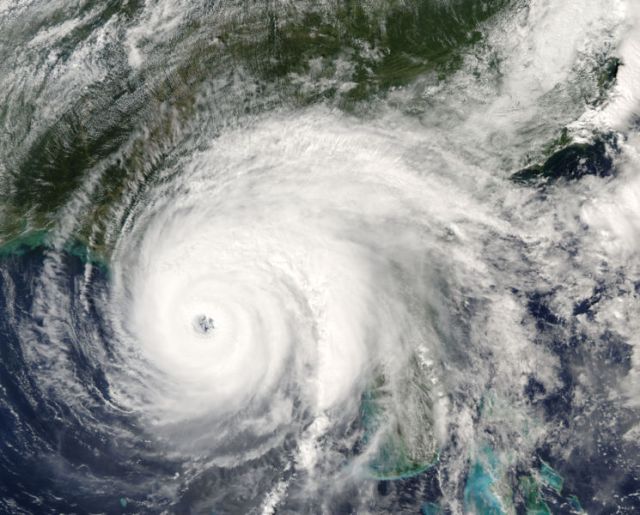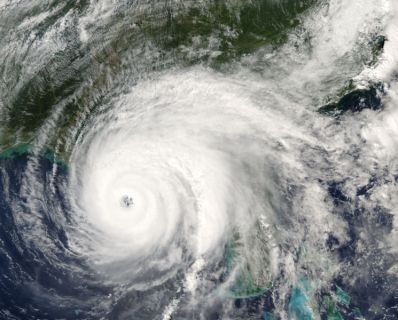Everyone who is an expat knows what it feels like to go home after a spell away from it. Always slightly surreal, like nothing has changed but everything has. You know that people will be less interested in you and your adventures than you hoped they would be. You also know you will not be able to see everyone you would like to – and will feel guilty for half the holiday about this fact. And then get over it: by the time you have driven 3,000 miles between eight different places, unpacked and repacked 28 times and slept in about 13 different beds, you will stop fretting about those people you couldn’t catch up with. After all, they can always come to you!
But apart from the obvious, what else did I learn? Following our visit, here are a few of my observations:
- The United Kingdom has become obsessed with Prosecco. This obsession had started before I left and it was already the drink of choice when I went to the pub with friends. But now the price of a bottle seems to have come down to lower than a decent bottle of red and it’s everywhere! There were even Prosecco bars at shopping malls – as if the proleteriat wanted to mimick the “ruling classes” with their champagne and oyster bars at Harvey Nicks……
- I think we can now safely say there will never be a proper summer in England again. We have been going to the same place in Devon for the end of July/beginning of August period for 10 years now and without fail it always rains non-stop for at least two days. My childhood memories of endless sunny days are just that – memories.
- After you have been away for a year, you will be that fumbly person at supermarket check outs with their new-fangled card machines and paying 5p for bags and not having someone to pack those bags for you and trying to remember you enter the card into the machine yourself rather than simply hand it over…..ditto petrol stations – what do you mean you have to fill it up yourself?!
- Politics is the new soap opera. It is the main topic of conversation with pretty much anyone you meet. If you don’t get on to the subject of Brexit within 5 minutes of meeting someone there can be only one reason: you suspect they voted differently from you. In which case talk about the weather, last night’s tv, sport….anything but the EU!
- Have we reached tipping point with social media? I have never seen so many people spend so long staring at their phones as I did this last month. Surely something has to give soon?
- For the first time ever on a return from a period of living overseas I didn’t go mad in a supermarket – which proves the quality of food here in South Africa. I did, however, go fairly mad in all other shops including clothes and book shops.
- The Brits love their dogs. But luckily they do not love their dog poo. It was very refreshing to be able to walk around without watching where you were stepping, especially in parks. I wish South Africans would learn to use their doggy poop bags…..
- I still love London more than any other city in the world. Yes the crowds do my head in, yes it’s flipping expensive. But it still feels to me like the centre of the universe – there is always something going on, and something new happening. Bath and Bristol run it a close second though.

Bath – my joint favourite UK city after London.
- It was also nice to be able to walk out of the house, including at night, and feel safe. I started off always locking my car door as soon as we were in but got more relaxed as the holiday went on. I am now doing the opposite and have to keep remembering to lock doors, keep windows up etc. It hasn’t helped that my domestic helper’s son was kidnapped, tied up and badly beaten for his card and pin nuber last weekend. A timely reminder that we are “not in Kansas anymore”.
I’m sure there are many other things I could say about my trip and my feelings about being home but this post has gone on long enough already so I will leave it there. But let me know if you’ve just been back to your home country after a spell abroad and if so, what were your observations? Did you find it just as you left it – or did everything feel a bit off-kilter? Did it live up to expectations – or were you happy to leave it all behind again?
Photos: glass of bubbly – Meg, EU umbrellas – Jeremy Segrott
The title of this post might be what to do when a hurricane hits, but really you should start your preparation long in advance of the moment the storm reaches you. There’s no excuses not to be prepared these days – if you move to a part of the world where hurricanes, typhoons, cyclones or other large storms are a common occurrence, you’ll know it. You should be prepared from day one. Additionally, modern weather prediction means you will usually know at least a few days in advance if you are likely to be in the direct path of the storm– and whether it’s picking up or losing power as it approaches. So what can you do to make sure you are ready – and then survive the storm if it does hit?
From the moment you arrive
If you are moving to a country where extreme weather events are a common occurrence (the Caribbean, parts of Southern USA, the Philippines, Japan all being good examples), then make sure you have everything you need for the day that inevitable storm arrives. Basics include torches and batteries, baby-wipes, essential medicines, nappies or formula if you have a baby. Keep a supply of non-perishable food and bottles of water year round, separate and away from your usual store cupboard (so you won’t be tempted to raid it and then forget to re-stock!). If you can, add a small camp stove or similar – something that can at least boil some water and heat up a tin of beans. Not only are you likely to be confined to the house for the duration of the storm, you may also be without electricity for a few days. A good first aid kit is important. Hopefully you won’t need it, but there can be a lot of flying debris during a hurricane so it’s better to be able to treat any minor cuts and bruises yourselves rather than attempt to get to a doctor or hospital.
You should also check to make sure your health insurance covers you for weather events like a hurricane and if not whether you need to take out extra insurance.
In the run up to “hurricane season”
Closer to the dates when storms are most likely to occur, make sure you know any local evacuation routes. If you need to, do you have a way to keep in contact with others in your family? Phone lines and mobile coverage might be effected. What about schools – what are their plans during an evacuation situation? How will they contact you if they need to? Check over your food and water store and re-stock if necessary.
If a hurricane is on its way
You should have good notice if a hurricane is heading towards you – most of these storms start out of sea and only become a threat once they start to reach land. The Weather Channel, the National Hurricane Centre and other sources are all good predictors of what is heading where and how hard it will hit.
As soon as it looks like one might be coming your way, fill your car up with petrol in case you need to evacuate, check the car over and if possible put it somewhere safe and under cover. If you need to, stock up with extra food and water. You may want to board up your windows – if you haven’t already done so, now is the time to buy the boards (before they sell out) and work out how to get them up.
Within 24 hours of the storm’s predicted arrival, put up your boards and move any outdoors furniture you have into your house. Move as much of your furniture as possible into the centre of every room. If flooding is likely, also move as much as you can off the floors. Collect together any important paperwork (passports, insurance papers etc) and put them into something waterproof. If you think evacuation is a possibility, pack a bag for everyone in your family (don’t forget pets!), including all the important paperwork. Looting is always a possibility in homes abandoned in an emergency so try and think what you might want to take with you – although bear in mind where you will be going. Keep listening to all broadcasts on the radio and television. Decide which part of the house is the safest – this should be somewhere with the fewest windows so if you have an interior room like a bathroom you might want to think about setting up home in there in case things get really hairy. Stock it up with pillows, books, games – it may be a long night. Fill your bathtub(s) and sink with water.
When the hurricane hits
Don’t go outside, stay away from windows and in no circumstance try and fix fallen cables or similar. If necessary, turn off your power supply (if it hasn’t already been switched off by the authorities). You might feel safer in the windowless room – even if it’s just for a few hours. If you do still have electricity, keep listening to all broadcasts. If you are told to evacuate, follow instructions. There may be a lull as the “eye” of the hurricane passes over; this might not last long so be careful if you do go outside and don’t venture far.
After the hurricane
Once you are sure the storm has passed and it’s safe to go out, check around your property for damage and if necessary call in on any neighbours who might need extra assistance to make sure they are okay. Once power is restored, listen to news for roads that have been blocked or airports closed. It may take a few days for things to return to normality and of course for some people it never will. Hurricanes can be difficult for expats but devastating for locals who live in far less secure and solid housing. This is the time to give back to your host nation – check whether any of your local staff need assistance, or help with fund-raising efforts.
Have you lived through a hurricane, typhoon or other major weather event? Do you have any tips to add to these? Or would you like to tell your story on this blog? If so please get in touch: leave me a message or email me [email protected].
This blog post was first published on the Medibroker website https://www.medibroker.com/blog/.
In the article, I talk about how it was only when I was living and travelling in New Zealand – an “outdoorsy” place if ever there was one – that I really started to understand why it is important to figure out the weather. Hiking, diving, even tandem-parachuting: these were all activities undertaken by me without much thought to whether the weather would be in our favour or not. But after a few close calls (we probably really shouldn’t have done that dive – or that freezing cold walk wearing just our shorts…), I started to understand that getting to know a bit about wind direction, precipitation levels and thermals (and no, I don’t mean thermal underwear) wouldn’t be a bad thing.
Fast-forward a few years and I was living in the Caribbean. Now this is one place where you really can’t avoid having at least a passing understanding of what the weather has in store for you. At least, during hurricane season. And boy did I ever learn this the hard way! First, in Jamaica, there was Hurricane Ivan (a force 5 that clipped the coast), then there was Dennis, with Emily close on it’s heels. And later still, living in St Lucia, there was Tomas.
Now we were in a much better position than a large percentage of the islanders, living as we did in solid homes with proper concrete walls. Sadly, there were a large number of deaths during these storms – Ivan in particular wrecked some of the islands completely. But it was still a terrifying thing to go through. We were stuck indoors for at least 24 hours (in the case of Ivan) and only ventured out when we were sure there wouldn’t be any more tree branches being thrown around in the wind. The devastation was awful, and the clean-up took days.
In St Lucia, our house was flooded by Tomas and the storms that came afterwards. We actually missed this one as we were in Miami at the time, but came home to find the remnants of the 6 inches of mud that had filled our kitchen.
Of course bad weather can happen everywhere – we’ve had tornadoes and terrible flooding in the UK in the last few years. But it’s only since living in the path of hurricanes that I’ve really come to appreciate the importance of understanding what it means when a small swirl on the other side of the Atlantic starts to gain in size, day-on-day, and then gets a name, then a Force number….
I intend to come back to this topic in a future post or posts and would be interested to hear your stories. Have you lived through any bad weather events while living overseas? How did you deal with it? Have you ever had to be evacuated because of a storm or other weather-related event?







